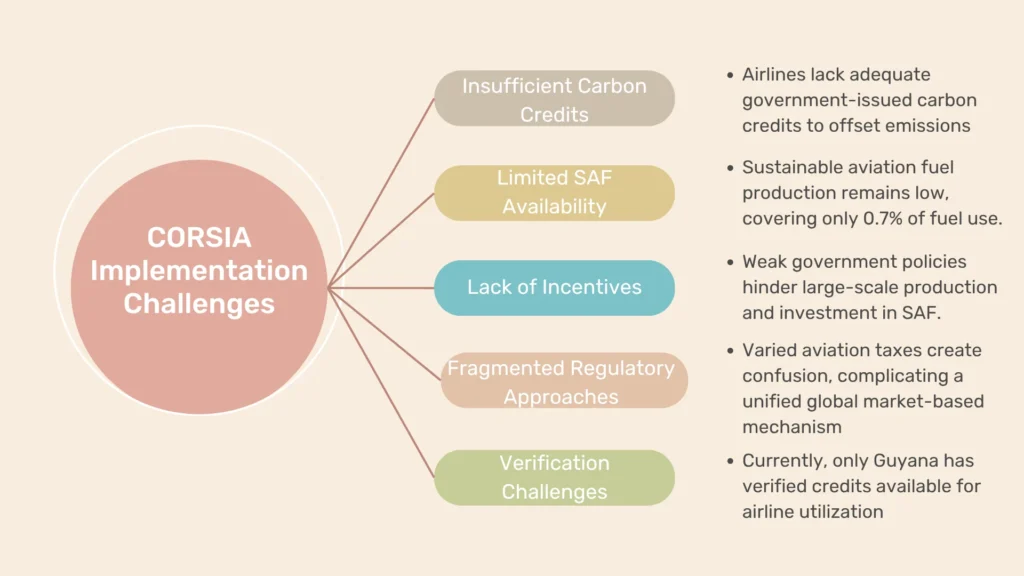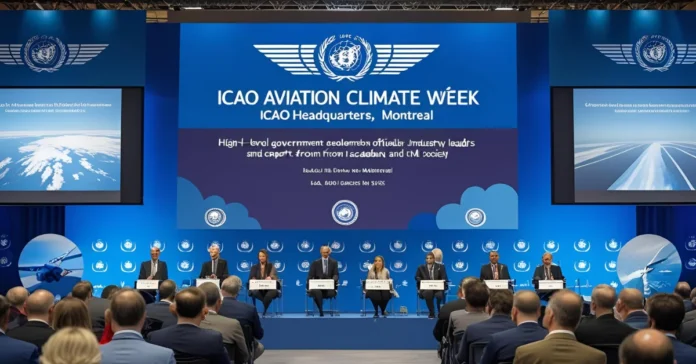ICAO Aviation Climate Week: Green Skies Ahead
The first ICAO Aviation Climate Week, held from June 2-4, 2025, at ICAO Headquarters in Montréal, successfully convened over 500 delegates, including high-level government officials, industry leaders, and experts from academia and civil society.
The event marked a significant step forward in global efforts to achieve net-zero carbon emissions in aviation by 2050, highlighting progress in sustainable aviation fuels (SAF), the clean energy transition, and collaborative implementation support.
As the aviation sector gears up for important environmental discussions at the ICAO Assembly this September, the momentum generated during the week is critical for sustaining and escalating climate action.
During the three-day event, participants engaged in discussions centered on the implementation of existing environmental frameworks, including SAF, Lower Carbon Aviation Fuels (LCAF), and other aviation cleaner energy solutions.
The week also focused on unlocking climate finance for aviation decarbonization, with ICAO and IRENA announcing a pioneering web-based platform designed to connect project developers with potential investors, further operationalizing the ICAO Finvest Hub for financial projects.
Another key highlight was the celebration of three years of the ICAO Assistance, Capacity-building and Training for Sustainable Aviation Fuels (ACT-SAF) program, which has attracted over 250 partners.
The week concluded with the unveiling of the 2025 ICAO Environmental Report, which showcases the aviation sector’s continuing commitment to sustainability and environmental responsibility. As the ICAO Assembly approaches in September, member states will discuss actionable resolutions that are considered vital for the sustainable future of global air transport.
Key outcomes:
- Reinforced the implementation of ICAO’s global sustainable aviation fuels (SAF) framework, covering both SAF and lower-carbon aviation fuels (LCAF)
- Launched the ICAO–IRENA Finvest Hub, a platform to connect aviation decarbonization projects with investors—marking a major step from planning to financing
- Celebrated three years of the ACT‑SAF initiative, with new partnerships (e.g., Airbus–Volaris feasibility studies in Mexico and Swiss government contributions)
- Published the 2025 ICAO Environmental Report, tracking sector progress across a range of climate and environmental metrics .
Why it matters:
This summit built momentum toward the upcoming 42nd ICAO Assembly (23 September–3 October 2025), where binding agreements on environmental policies—including long-term goals, SAF scaling, and climate finance—are expected

Regulatory Advances: Fuel Efficiency, Navigation & Digital Travel
Aircraft CO₂ and Noise Standards
In their March CAEP/13 session, ICAO approved new binding global standards:
- From 1 January 2029, new aircraft must be at least 6 dB quieter.
- From 31 December 2031, certified aircraft must cut fuel consumption by 10%, equating to ~35% efficiency compared to 2000 standards
These dual standards spur innovation in engine design, airframes, and aerodynamics—directly supporting long-term decarbonization and community-friendly operations .
Advanced Navigation & Safety Standards
On 7 April 2025, the ICAO Council adopted updates across multiple Annexes (Chicago Convention), including:
- Roll-out of ARAIM (dual-frequency satellite navigation) for precise route tracking .
- Mandating cyber-resilient communications, adoption of commercial off-the-shelf systems, and reduced aircraft wiring (lighter planes) icao.int.
- Upgraded airport and heliport visual aids, obstacle management, and safety oversight icao.int.
- Better weather forecasting technology (e.g., space/volcanic ash and digital data sharing) .
Together, these modernise air traffic systems, improve efficiency, reduce emissions, and enhance operational resiliency.
Digital Travel Credentials & Biometrics
ICAO is actively rolling out Digital Travel Credentials (DTCs), set to replace paper boarding passes.
Within 2–3 years using smartphones and facial recognition, passengers will access a “journey pass” for contactless, biometric boarding, re-routing, and gate info—without storing personal data
This is a major shift in passenger experience, aligning closely with ICAO’s long-term goal of seamless, secure travel endorsed at CAEP and FALC meetings .
The Carbon Offsetting and Reduction Scheme for International Aviation (CORSIA)
Background & Status
- Introduced in October 2016, CORSIA establishes carbon neutrality for international aviation from 2020 onward, using market-based offsetting
- It remains voluntary until 2027, when full compliance for all participants is required
Implementation Challenges
IATA DG Willie Walsh (4 June 2025) warned that without adequate government-issued carbon credits, airlines—despite being ready to offset—will struggle to meet obligations. SAF, though doubling to ~2 million t in 2025, will still cover just 0.7% of fuel use.
He called for stronger government policies to both (a) unlock CORSIA credits (b) incentivize large‑scale SAF production. Currently, only Guyana has verified credits ready for airline use
ICAO’s environmental division also previously voiced concerns over fragmented approaches like aviation taxes, favouring a single global MBM such as CORSIA .

ICAO’s Role in Incident Response & Aviation Security
Air India Dreamliner Crash, Ahmedabad (12 June 2025)
- A Boeing 787-8 carrying 242 people crashed after takeoff; 241 fatalities—only one survivor
- India’s AAIB launched a full investigation in line with ICAO Annex 13 protocols
- The Indian government also announced formation of a high-level inter-disciplinary safety committee to bolster civil aviation oversight
- Interestingly, this is the first fatal hull loss for a 787 since its 14-year history, triggering Air India’s planned retrofit program
Nigeria–US Airport Security Audit
To maintain US–Nigeria commercial flights, the US‑TSA has begun a three‑day audit (10–13 June) of Nigerian airports, focusing on adherence to Annexes 14 & 17 (safety/security standards) . This underscores the importance of ICAO’s security annexes and mutual oversight.
Looking Forward: What Comes Next?
September–October 2025 ICAO Assembly
The 42nd Session of the ICAO Assembly (23 Sep–3 Oct) is expected to:
- Formally adopt the March 2025 fuel/noise standards.
- Ratify measures passed during Climate Week: SAF, Finvest Hub, and environmental reporting.
- Reaffirm or adjust long-term strategic goals like LTAG (net-zero by 2050).
Momentum for Action
Despite policy gains, significant implementation hurdles remain:
- SAF capacity needs exponential growth, far beyond 2025 projections.
- Carbon credit availability lags behind airline obligations.
- Digital credentials and navigation upgrades require coordinated regulatory and infrastructure buildout globally.
Continued Safety & Security Oversight
Following the Gujarat crash and Nigerian audit, ICAO’s Annexes 13, 14, and 17 remain vital frameworks. Global compliance through audits and investigations ensures aviation systems advance in safety, efficiency, and technology appropriate for evolving threats and innovations.
In Summary
ICAO’s latest regulatory activity outlines a strong global agenda:
| Domain | Key Developments |
|---|---|
| Environmental | Climate Week, SAF frameworks, Finvest Hub, environmental reporting, LTAG commitments |
| Standards & Regulations | New CO₂/noise standards, satellite navigation (ARAIM), airport/heliport modernization, DTC rollout |
| Policy Implementation | CORSIA gearing up for mandatory phase, yet structural challenges remain |
| Safety & Security | Annex-based crash investigation, TSA audits, digital boarding transitions |
These developments reflect ICAO’s multi-front approach: balancing aviation growth, climate resilience, technological modernization, passenger experience, and global security. October’s Assembly marks a pivotal moment for formalizing these pathways.

